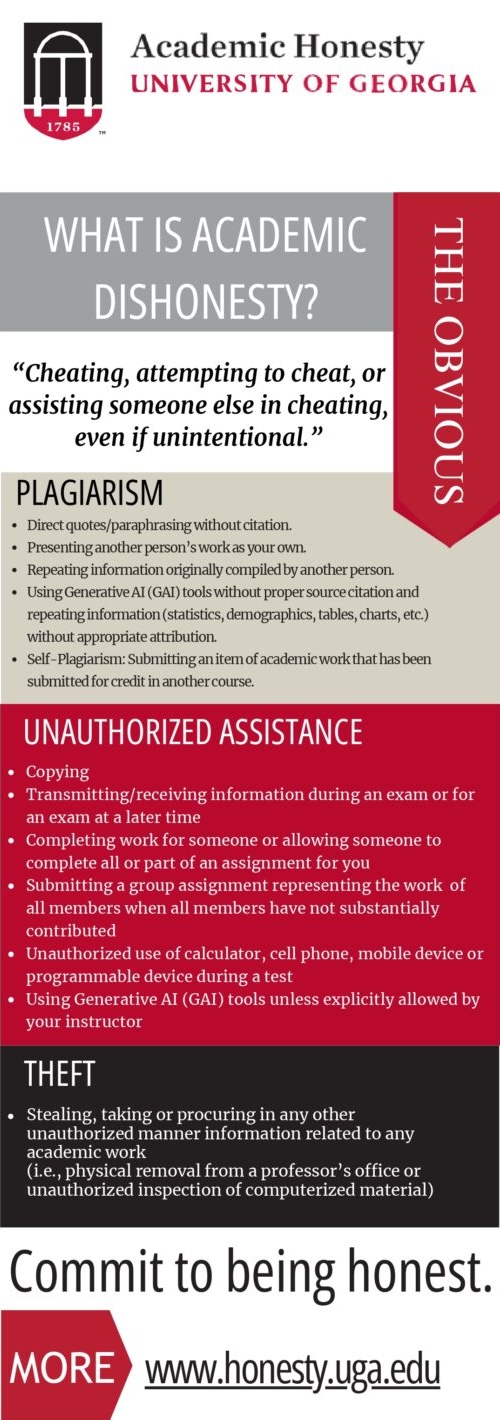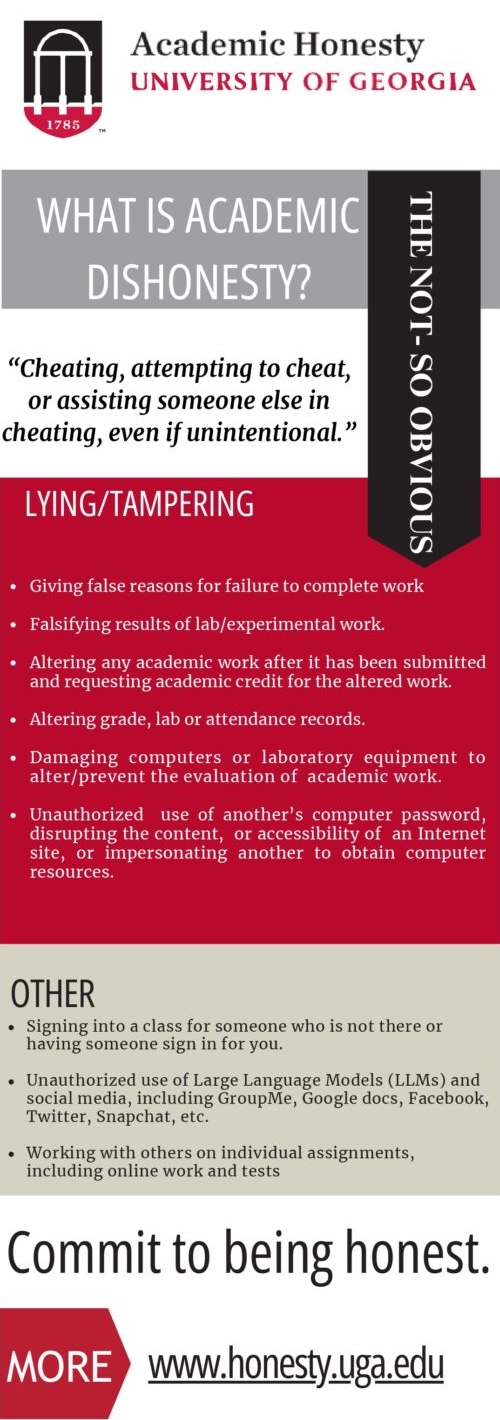No student may complete, attempt, or help another engage in academic dishonesty on academic work. Any dishonest act can be a violation of the policy, whether intended or not.
Students must be vigilant to avoid accidental plagiarism or assisting other students without authorization.
Any behavior that constitutes academic dishonesty is prohibited even if it is not specifically listed in the list of examples.


